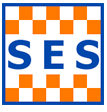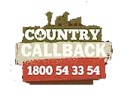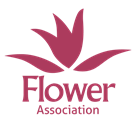Article excerpt provided by SuperFriend
Major events like relationship break-ups or the death of a loved one can be life-changing. However, if an entire community goes through a challenging period, such as the droughts and bushfires we’re currently seeing, we need to work together as a community to lighten the load for each other.
Shared experience provides the opportunity for communities to come together in a way they may not do so otherwise. It is this connectedness that benefits our community and there are ways we can all encourage this connection, as a protective layer against the feeling of helplessness and despair.
If someone is doing it really tough – ask how you can help
Experiences that aren’t within our control often leave people feeling powerless. Something that can help a friend, neighbour or member of your community to restore some sense of control in their life is to ask their permission for anything that you do. This will also allow them to direct you to the most effective way you could provide support. The act of giving support to someone else is also one of the proven ways to improve your own wellbeing.
Give yourself permission to feel how you feel
Feelings of loss and sadness – even if they are not your own – can challenge us personally, as it is natural to share the pain of others. These feelings are completely normal at any time, and even more so during difficult circumstances. Your experience will be as unique as you are and there is no right or wrong way to go through trying times. Give yourself permission to feel how you feel and remind yourself that it will get easier.
Know what to do when you’re not feeling good
Not feeling good is your trigger to pick up the phone, text or go and visit someone you know. Even a short chat can bring us back to the present moment and away from feelings of worry. Everyone will have different coping mechanisms, so it’s important to know what yours are. Often people find that doing something practical gets them out of their heads. Practising mindfulness using an app like Smiling Mind or Headspace can get you ready for those times you need to focus on the present rather than dwelling on the past or future.
Care for yourself
Sometimes it can be tough to help others. It can leave us feeling tired, sad or low. It’s as important to care for yourself as it is to care for those around you. An important part of this is knowing what your limits are. We all have limits to our time, our energy and our skills. By knowing the limit of what you can do, and by not going beyond that limit, you can avoid doing damage to yourself and the other person.
Find support when you need it
The mental health sector has developed excellent resources which collate helpful information around how to cope with natural disasters. We would encourage anyone impacted by the bushfires to familiarise yourself with these materials if you have an opportunity to do so.
Learn from the experts
SuperFriend is Sunsuper’s workplace wellbeing partner and together we support employers to build mentally healthy workplaces for their staff. Visit superfriend.com.au and head to the ‘Resource’ section to download a number of free resources including ‘Building Thriving Workplaces’ booklet.
Support tools to help in times of natural disaster
Lifeline
- Children:lifeline.org.au/static/uploads/files/helping-your-children-cope-with-the-after-effects-of-a-natural-disaster-wfvfnlse.pdf
- Adults:lifeline.org.au/about-lifeline/media-centre/natural-disaster-support
Headspace
- Talking to children and youth:org.au/friends-and-family/how-to-support-your-child-after-a-natural-disaster/
- For youth:org.au/young-people/how-to-cope-with-the-stress-of-natural-disasters/
Beyond Blue
- beyou.edu.au/-/media/pdfs/fact-sheet-pdfs/how-to-provide-support-after-a-natural-disaster.pdf
Other sources
Legal Aid NSW
- legalaid.nsw.gov.au/publications/factsheets-and-resources/your-workplace-rights-during-natural-disasters-and-emergencies
Access EAP
- accesseap.com.au/resources/accesseap-blog/support-through-a-natural-disaster
NSW Natural Disaster Assistance
- emergency.nsw.gov.au/Pages/for-the-community/disaster-assistance/natural-disaster-assistance-schemes.aspx
QLD Recovery after a disaster
- qld.gov.au/community/disasters-emergencies/recovery-after-disaster
Key national 24/7 crisis support services include:
Lifeline 13 11 14 www.lifeline.org.au
Suicide Call Back Service 1300 659 467 www.suicidecallbackservice.org.au
MensLine Australia 1300 789 978 www.mensline.org.au
Beyond Blue 1300 224 636 www.beyondblue.org.au
Key Youth Support Services include:
Kids Helpline 1800 55 1800 www.kidshelpline.com.au
Headspace www.headspace.org.au
ReachOut au.reachout.com
This article has been prepared and issued by Sunsuper Pty Ltd ABN 88 010 720 840, AFSL No. 228975, the Trustee and issuer of the Sunsuper Superannuation Fund ABN 98 503 137 921. Sunsuper is not a mental health service or employee wellbeing consultant and does not provide clinical advice or professional services. We’ve put this information together as general information only and as such it doesn’t take into account your organisation’s objectives, situation or needs, or those of your employees. You should get professional advice before relying on this information.














